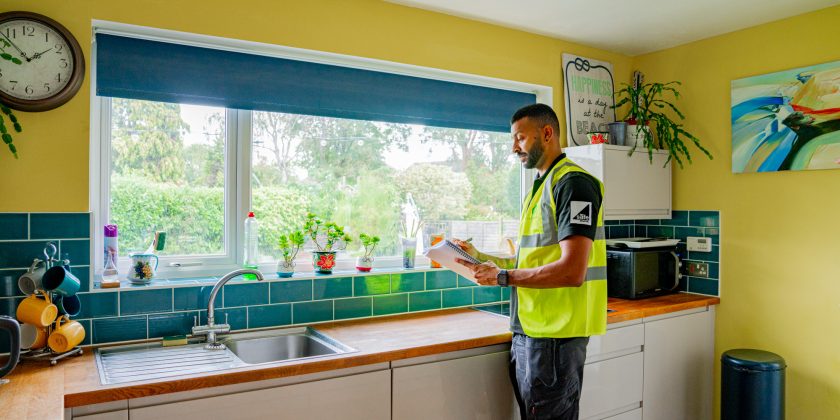Energy Performance Certificates (EPCs) are necessary to understanding the energy efficiency of any property.
These certificates, which are valid for up to 10 years, are a primary indicator of the possible price of energy bills as well as how much carbon emission the property emits.
EPC ratings between ‘G’ and ‘A’ are provided by energy assessors who visit the building. Currently, an ‘E’ is the pass rate for the private rented sector, though there is speculation that this will rise to a ‘C’ or above by 2025 for all newly rented properties, and 2028 for all rental properties.
Here at Propcert, we reveal how the age of a building can impact the EPC rating it receives.
The older the building, the more inefficient
Housing associations, commercial landlords, and councils are responsible for housing people or staff in safe environments. Therefore, awareness of how the age of a building can sometimes determine the EPC rating is necessary.
The general rule of thumb when it comes to properties is the older it is, the worse the energy efficiency it is likely to have.
The common factor that makes older buildings more susceptible to having lower ratings is they are more prone to having in-build defaults that require fixing or cause long-term damage.
Properties built before 1930
Properties built before 1930 are known for having solid brick walls and, unless they have been retrofitted, they will not typically provide insulation to the roof or floors.
Overall, the very existence of older buildings demonstrates that they are sustainable. They should not be ruled out as they can undergo the appropriate refurbishment work to boost their overall rating. While the EPC rating can be relied on to uncover what fixes need to be made.
In addition to this, historic, handmade window glasses are much thinner and lighter than modern glass. They might be prone to draughts, although getting a professional to better fit the frame or counterbalance sashes correctly could boost the rating.
Before making significant changes, the planning department of your local authority should be contacted to provide planning permission or listed building consent.
New build properties and EPC regulations
Due to the more recent regulations placed on modern buildings, many assume that new build homes are more energy-efficient compared to older homes. However, the only way to gain a thorough understanding of the status of the home is through an EPC.
A recent study revealed that, between October and December 2021, 84% of new build properties were given an ‘A’ or ‘B’ EPC rating. By contrast, 81% of older properties received a ‘C’ or ‘D’ rating and only 4% received an ‘A’ or ‘B’ rating.
MEES standards
Since 1 April 2020, under MEES (the Minimum Level of Energy Efficiency Standards), a property with an EPC rating of F or G can no longer be let in the private rented sector.
Local councils have the powers to investigate any potential breaches of the EPC regulations. If these are breached, they could lead to a penalty notice imposing a fine between £5,000 to £150,000. The total is set in accordance with the property’s rateable value.
As the government remains heavily committed to reaching energy efficiency targets and tenants seek homes that meet energy efficiency standards, improving EPC ratings should be prioritised among housing associations, commercial landlords, and councils.
With permission granted and trained professionals carrying out the improvements, the EPC score of any building can be improved.
If you do make any changes to your property to increase the rating, a new EPC should be carried out as the rating will be affected by those changes.
Here at Propcert, we are a nationwide provider of property services including Energy Performance Certificates, Electrical Installation Condition Reports, Asbestos Surveys, Fire Risk Assessments and more.
For a full list of services please click here and contact us here for any more information on what we provide.



